By: Brad Robinson
Master Sergeant Yel Jacks is a 20-year distinguished veteran of the United States Marine Corps and is a veteran of both the Korean and Vietnam wars. Master Sergeant Jacks served in a vast array of roles throughout his career in the Corps and served as a supply and logistics Non-Commissioned Officer in the Marine Aerial Refueler Transport Squadron 152 (VMGR-152) at Chu Lai 1965-1966 and at Da Nang 1969-1970. His duties included overseeing the transport of arms, supplies, and troops throughout the northern provinces of the former Republic of Vietnam, where a majority of all Marines Corps campaigns took place during the war.
Early Life and Korean War Service.
“Once school was out, it was summer the, The Korean War broke out in June, and it was August, and my freind Lamar Holland come by and says, ‘Let’s go join the Marine Corps.’ I said, ‘Well that’s great for me. I always wanted to be a marine.’ So we went down. There was 11 people tryin to get in the Marine Corps at that time, but they only accepted three of us, me, Lamar, and a boy named Hurst, who had been in the Army before.”
Yel Jacks on joining the Marine Corps
Yel’s service in Korea was one of prestige and honor. It began when he was sent to Camp Lejeune in the fall of 1950. From there, Yel was sent to Camp Pendleton were he was connected to the 42nd mortar company field marines, 2nd marine regiment, 1st marine division. After his designation and advanced individual training, Yel traveled to Korea in the spring of 1952 and was stationed at outpost “Reno” outside of Sochori, which is located on the east coast of South Korea. In the summer of 1952, the Chinese launched a major offensive to try and pressure the U.N. coalition forces into signing an armistice in favor of Chinese terms. Yel’s unit saw a brunt of the fighting.
“We was there on the east coast, oh, I don’t know, maybe a month and half, two months, the word intelligence said that the Chinese or the North Koreans were going to jump off and come down marching to the tune of “China Valley.”
Yel Jacks on the Chinese summer offensive of 1952.
Getting Wounded
After months of intense fighting, Yel was wounded in action while fighting near outpost “Berlin” in march of 1953. His memory is vague on the event to the point where he can’t actually recall what happened other than that he was firing mortars until everything suddenly went black.
“Anyway, it was constant mortar fire and stuff back and forth and these things. This is when Mclaughlin won the Medal of Honor. He was out on the outpost with us. We’d fire all night long sometimes. At that point, I don’t know what happened other than we were knocked out. I woke up, and some guy was yelling, ‘here’s another dead one.’ Our platoon had been decimated, KIAs everywhere.”
Yel on being wounded near the 38th parrallel
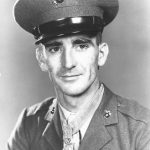
Returning to the States and Interim Period Between The Wars
After his treatment for shrapnel wounds, Yel was rotated back to the states and briefly left the marines in favor of a career at U.S. Steel, but soon returned due to disagreeing with the combative tactics of the labor unions and their strangulation of U.S. Steel. He was then reinstated at his departing rank of sergeant and was assigned to Camp Matthews, were he was trained as a drill instructor and served in that role from 1954 to 1955. From there, he transferred back to the infantry and specialized in reconnaissance, but was forced to transfer again after suffering a disqualifying injury in a car wreck in 1959. He then transferred to the 2nd Marine Division and became a supply and logistics sergeant.
First Tour, Chu Lai
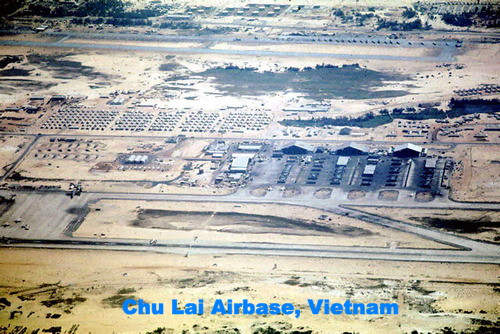
Yel arrived in Vietnam by ship in February of 1965 at Chu Lai. At this point, he was a member of the Marine Aerial Refueler Transport Squadron 152, or more commonly known as VMGR-152. Yel’s unit was one of the first to arrive as part of Lyndon Johnson’s troop surge in the spring of 1965. Once he arrived in Vietnam, he and his fellow marines began to construct what would become the Chu Lai Airbase, which served as one of the most heavily used logistical support recourses during the war. Yel’s duties from there included overseeing a six man crew of marines who were tasked with loading supplies, ammo, food, and vehicles onto C-130s, UH1-Hueys, and Chinook helicopters before they deployed out into the field. While Yel acknowledges that he contributed greatly to the war effort in Vietnam, he also expressed a sense of regret for not being able to serve in combat due to his injury.
“To be honest with you, I would rather have been out in the field with the men. I had done the infantry for 12 years ,and now here I was doing something else.”
Yel talking about his time as a supply sergeant.
While stationed at Chu lai, Yel would sometimes fly with pilots of different aircraft and participate in “milk runs” to anti-communist forces across the border in Cambodia. Yel described these experiences as educating and surreal, and that they indicated to him early on that the conflict in Southeast Asia was not a simplistic, black and white cold war conflict but one that went much deeper. One that incorporated ethnic, religious, regional , and many other contributing factors that were too complex to be corrected with strictly military and economic aid. at this point, Yel became pessimistic about the U.S.’s chances of achieving its’ goals in Vietnam. Yel’s first tour concluded in the spring of 1966 and he was rotated back to the states.
Time Between Tours
Yel was then stationed at Camp Lejeune, were he continued his career as a supply and logistics sergeant. During this period, the Six-Day War broke out in the middle east. Yel spoke of this conflict saying that the 2nd Marine was mobilized and prepared for combat operations until the war concluded.
“We got paid and told to only by shoes, skivies, and work uniforms. We still didn’t know what was going on. By dark, we were at the Yokohama loading board ship.While we got aboard ship, they said, ‘Well, there’s a Six-Day War, Israel and the Arabs are fighting each other.’ This must’ve have been the first or second day of the thing. we didn’t know much about where we were going, but we took off and went down the Mallacca straight to get into the Indian Ocean. By the time we got to the Indian Ocean, it was over. They told us that the war was over. I don’t know what the point of us being down there was. I guess a show of strength.”
Yel on being mobilized for the Six-Day War
Second Tour, Da Nang
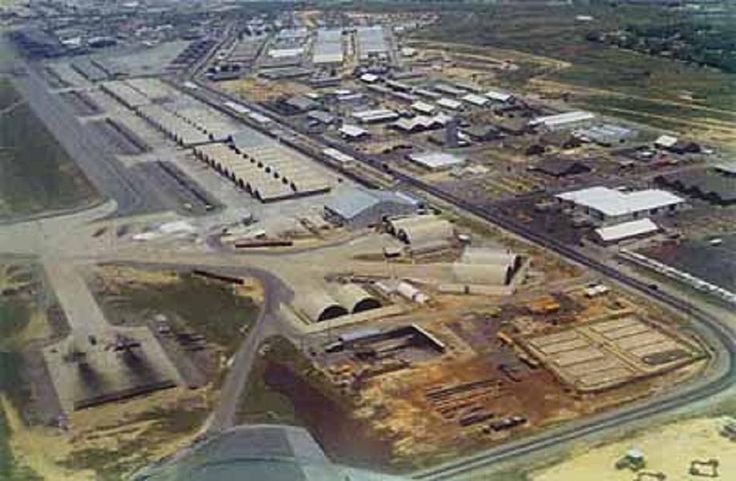
After this, Yel was sent back to Camp Lejeune were he served until May of 1969 when he signed up for another tour in Vietnam. At this point the environment of the war had completely changed. Troops were pessimistic and undisciplined, vietnamization was underway and troop reductions were being commenced. Yel, now a Master Sergeant, did not let the pessimistic nature of the conflict get to him. At this point, he was stationed at Da Nang , where he was the head non-commissioned officer in charge of logistics. The entailment of this job was to oversee all transport of supplies and men through the base and make sure that it was done correctly. Yel’s new job allowed him to be directly involved with combat activity by supporting Marine Corps combat operations such as Operation Cameron Falls, Operation Pipestone Canyon, and Operation Defiant Stand. (Murphy, 1997) This direct combat linkage allowed Yel to feel more complete about his service in Vietnam due to his yearning to return to combat. While stationed in Da Nang, Yel came into contact with many celebrities who would be traveling to USO tours. These celebrities included Bob Hope, who Yel described as a “jerk,” Johnny Mathis, who Yel liked to hear sing, Martha Raye, who was apparently having an affair with a Colonel at Da Nang, and finally, the wonderful Ann-Margret, who was Yel’s favorite celebrity interaction for obvious reasons.
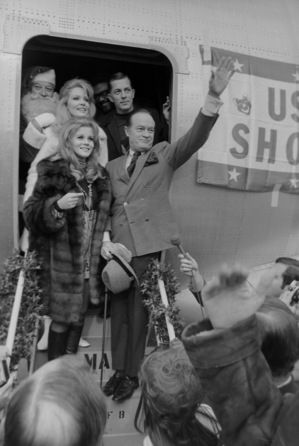
During Yel’s second tour, President Nixon had begun the beginning phases of troop withdrawal as consistent with his vietnamization program. Because of this, Yel oversaw the logistics of the gradual troop reductions and saw thousands of young men go home as their roles were overtaken by ARVN troops, who Yel despised for their lack of discipline and enthusiasm.
“They didn’t impress me. They were farmers, men who were conscripted, just people that didn’t want to be there. Very sloppy, they never maintained their gear. You’d walk by and ammo and grenades would be lying everywhere. They just didn’t want to participate. I guess I can’t blame them.”
Yel on ARVN forces
Yel also mentioned what it was like being a man in his late 30s serving with adolescents who were roughly 19 years old on average who were less enthused about having to serve in a war that they didn’t approve of. He said that while most of the marines that he served with either didn’t agree with how the war was being waged or didn’t agree with the war at all, they all continued to do their jobs to the best of their ability, and rarely showed any sort of pessimistic output related to their logistical duties. One thing that Yel did not indulge in while Vietnam was smoking “pot” as he calls it. He attributes a lot of the failures in Vietnam to soldiers that smoked pot, claiming that it led to laziness and mediocre output from the U.S. armed forces as a whole.
“Well, the thing is, you’re the boss and it’s like anything else, whether they like your attitude or not, you’ve got a job to do and you’ve got to do it. I mean, I kept one boy and he was a problem, he was one of these doves, you know. Hey, I told him, ‘look boy, you’re out here going to get your ass killed if you don’t do what you’re supposed to do.’ I mean, And it’s…. most of these kids when they there and they realize, ‘hey, everything is on the line.’ They’d perk up. You’d be surprised what an eighteen, nineteen year old who can get a little common sense can do. This is real stuff, so straighten up and do it. In Vietnam, the problem was pot. They all smoked pot. I mean, they ain’t nobody gonna lie and say they didn’t smoke pot. But I can honestly tell you I never smoked one gram.”
Dangers of Serving Overseas
While Yel was not a combat veteran of the Vietnam War, that did not mean that he wasn’t in danger. According to him, there was constant mortar fire and the threat of snipers while being stationed both at Chu Lai and Da Nang. He expressed his sadness on losing a close friend to mortar fire in 1969. There was also the threat of mechanical or human error when dealing with all of the heavy machinery and aircraft stationed on the bases in which he served. Here are few excerpts from the interview.
” We’d get mortars and stuff like that all the time, especially at night. At first you’re kind of on edge, but eventually you get used to them.”
“We had a bad sniper problem at Chu Lai, they’d start popping shots at us while we were working on the runway, so we’d have to take cover and radio a rifle company so they could go out there and get them. It was more annoying than anything else, really held up our schedule sometimes.”
“Hey, one time I saw a helicopter explode mid-air when it was hit by a rocket or something. I mean, bodies were falling everywhere.”
” Me and the Captain was standing there talking, it was… Monsoon time, it was rainy, cold weather, dropped down seventy degrees and you’re freezing to death and rainy. We was talking and I asked him, I says, ‘you ever fly one of them?’ He says, ‘no.’ He said, ‘but if you ever lost control of that thing’, he says, ‘it’s… you’re gone.’ And we were watching it, and sure enough, one of them, something lost power on one of the- they’ve got four engines, lost power or something. That thing , man- he wasn’t in over there and he killed some people over and they said, I forget how many people that-twelve, fourteen people in that thing with all this electronic equipment and everything. And the only one who survived, the guy in the back of the tail of it. And it killed some people on the ground, wiped out some airplanes.”
Yel on the entailment of the dangers related to his job.
Coming Home and Retiring from the Corps.
In the spring of 1970, Yel’s second tour came to a close. He flew into San Diego where he was again sent to camp Matthews to where he was phased out. By August of 1970, Yel was sent home to Bessemer, Alabama where he served in the Marine Corps Reserve for six months before finally retiring as a marine in January of 1971. Altogether, Yel served 20 years as a marine and spent three years in combat zones. After his career as a marine, Yel worked many odd jobs until a friend from high school propositioned Yel to go into business with him. Their business specialized in building camper covers for truck beds in which they made a very comfortable living doing. After doing that for 20 years, Yel worked at the post office, not because he needed the money, but only because retired life didn’t suit him because he felt the need to work. Today, Yel is 88 and suffers from the ailments that any 88 year old could run into. He has Parkinson’s along with congestive heart failure and stomach cancer. But this does not discourage him. He still gets up ever morning and walks a mile, a little bit of a reduction in his workout routine considering that used to get up and run six miles every morning, but nevertheless, Yel continues to stay in great shape. He lives with his wife, Irue, to whom he has been married to for 56 years. They have one daughter, Candy, and together they have five grandchildren. While Yel feels that Vietnam was mishandled and is less than confident that we should’ve been there in the first place, he says that he is proud of his military service and wouldn’t change anything that happened during it, including Vietnam.
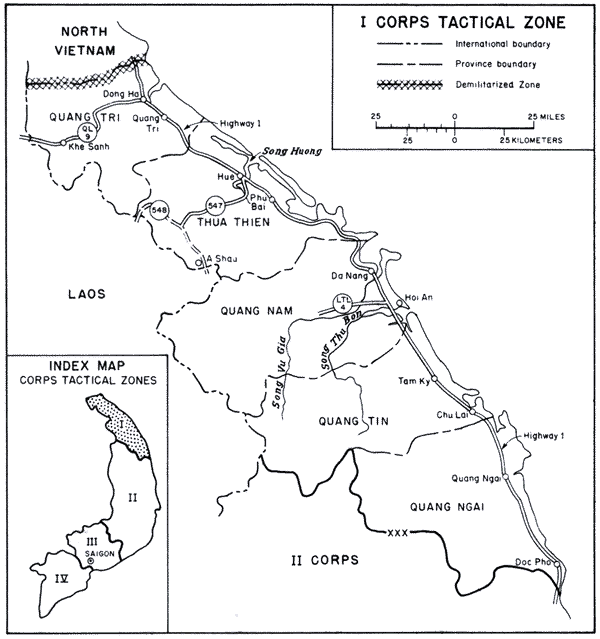
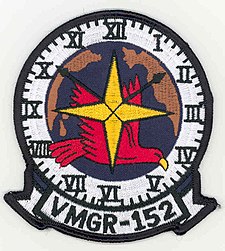
https://soundcloud.com/user-205675674/91-bannerman-rd-2-2/s-7DX4i
https://soundcloud.com/user-205675674/89-bannerman-rd-copy-1/s-oPC0j
Further Reading:
Murphy, Edward. Semper Fi-Vietnam: from Da Nang to the DMZ: Marine Corps Campaigns, 1965-1975. Novato, California. Presidio Press. 1997.
Heiser, Joseph. Vietnam Studies: Logistical Support. Fort Benning, Georgia. Department of the Army. 1974